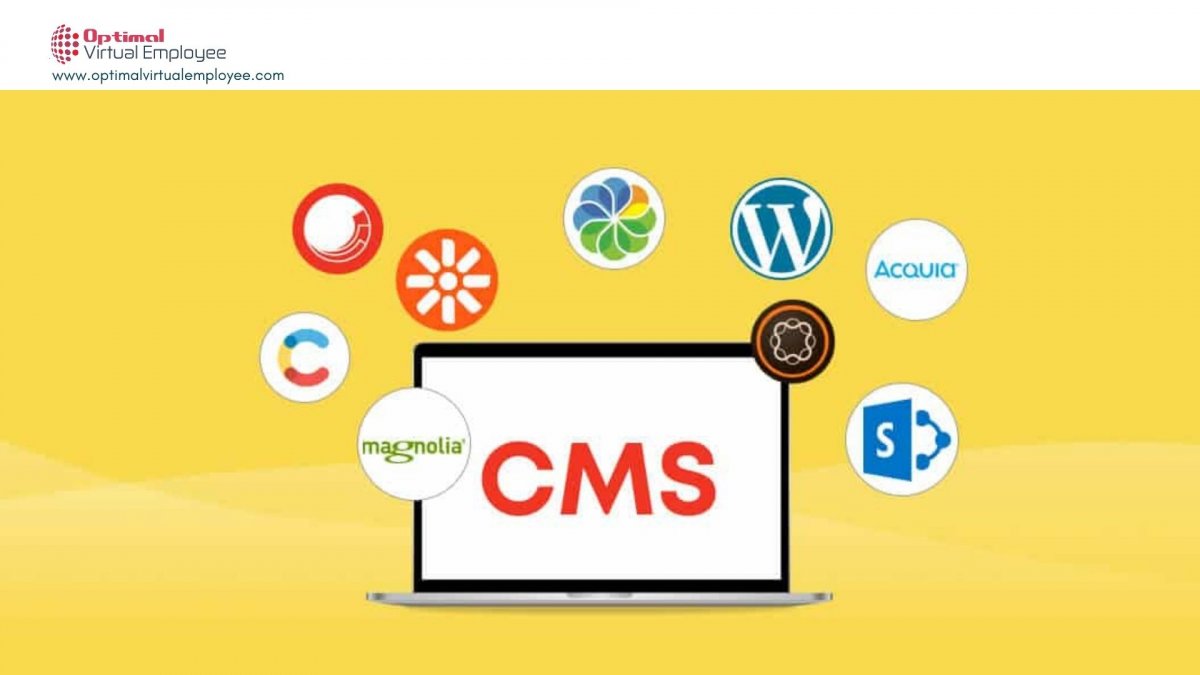Right from the landing page content to the blogs posted every week, contents need to be managed and updated from time to time.
As the search engine algorithms change almost every day, every business must update their website contents, media, and other documents. This helps in staying at par with the trends in this heavily competitive market.
But the main question is how one can update, modify, and launch new contents and document files on the website without any hassle?
The answer to this question is Content Management Systems- software that allows businesses to create, modify, update, and load website content at different points. A CMS helps the web developers handle a website’s preliminary content infrastructure without having to deal with static contents, server downtime, and other such challenges.
Top CMS Platforms To Develop a Business Website
As CMS usage is getting popular, we will bring forth the top such platforms that you can use for proper web development and website modification.
1) WordPress
WordPress is the first choice for web developers worldwide, all thanks to the tons of features included in the platform. Most websites are developed and managed using this CMS tool WordPress. Starting from built-in plugins to an extensive media library, you will have access to several tools and elements that will boost your content’s effectiveness.
Pros
- WordPress has a built-in editor which allows easy content creation and modification.
- With lots of themes and plugins, developing a business website will be easier on WordPress.
- The URLs and other elements present on WordPress are SEO-friendly.
- Contents can be downloaded in XML format, making it easier to transfer the website to other platforms.
Cons
- A hosting platform and domain name need to be bought to make your website unique.
- For beginners, using WordPress can be daunting, especially with a wide range of essential to advanced features.
2) Joomla
The next popular CMS platform which most developers are now using for completing website development is Joomla. Somehow, Joomla’s features are almost similar to that of WordPress, and hence you will have a lot of flexibility while working on this platform.
Pros
- Joomla provides many extensions that will help you create your website content or manage the existing one easily.
- Editing contents and managing them wouldn’t require any form of technical skills.
- It provides tons of community support which will make web development look like your cup of tea.
Cons
- Some Joomla features are pretty complicated to handle, and that will require professional interference.
- Joomla doesn’t offer many themes and plugins that you can use for your website’s extension.
3) WooCommerce
WooCommerce is an extension of the WordPress platform, built specifically for eCommerce websites. This particular CMS platform is, in reality, a plugin extension, and hence you will have access to all the eCommerce website elements solely.
Pros
- You can design the website’s appearance based on the eCommerce web design market trends.
- For adding extra functionalities and features, you can use the extensive list of WooCommerce plugins.
- WooCommerce platform can be integrated with third-party tools like inventory management software or affiliate management software.
Cons
- Hosting and domain name needs to be purchased separately for your website.
- Handling WooCommerce can be difficult as it is an advanced WordPress plugin made for eCommerce web development.
4) Wix
Wix might be a medium-level CMS platform. For beginners, this particular platform is way more efficient than the ones we have discussed above. Wix is easier to use than WordPress or WooCommerce, which is almost every new business website can be developed using this CMS platform.
Pros
- Wix is mainly known for its flexibility and scalability, which will improve your website’s performance.
- Any content can be managed using Wix, which is indeed a plus point.
- The pre-made templates will help you design a website as per your choice and place the contents appropriately.
Cons
- The number of plugin options isn’t too great, and hence, integrating other functionalities might be a problem.
- Once a template layout is chosen, you won’t have any option to change the same.
5) Shopify
The last CMS platform that most web developers prefer to use at the introductory level is Shopify. This platform acts like a hub or a one-stop solution where you will get every tool and feature required to build a website conglomerated in one place.
Pros
- Third-party tools and features can be integrated with the Shopify platform.
- Several built-in templates and plugins are available at Shopify that will help in rapid website development.
- Proper support will be available 24X7, and hence, you won’t have to worry about not getting help when needed.
- Shopify will allow you to make changes in the layouts and contents until the website is launched on the server.
Cons
- Using the Shopify premium version is very costly.
Final verdict
A website consists of several elements like security, graphic designs, backend functional coding, etc. However, one of the main elements which bring traffic to your website and increase the conversion ratio is the content you are putting upfront for your viewers/ users.
For web development, using the CMS platforms is more feasible rather than handling the contents on your own. And as we have discussed the top CMS platforms, working with any of them will be lucid for you now. All you need to make sure is that the concerned CMS platform’s features and tools can meet your business requirements.









